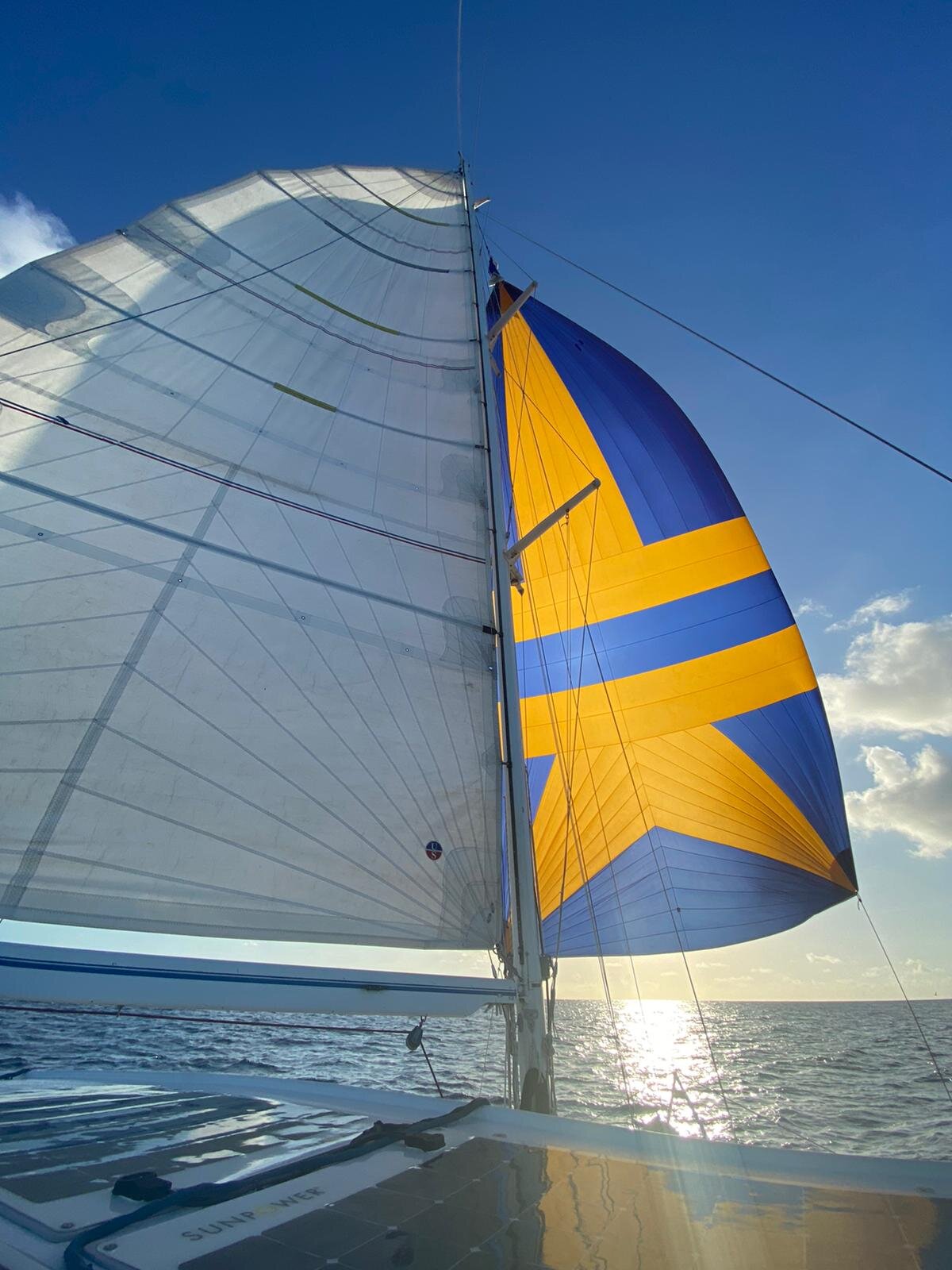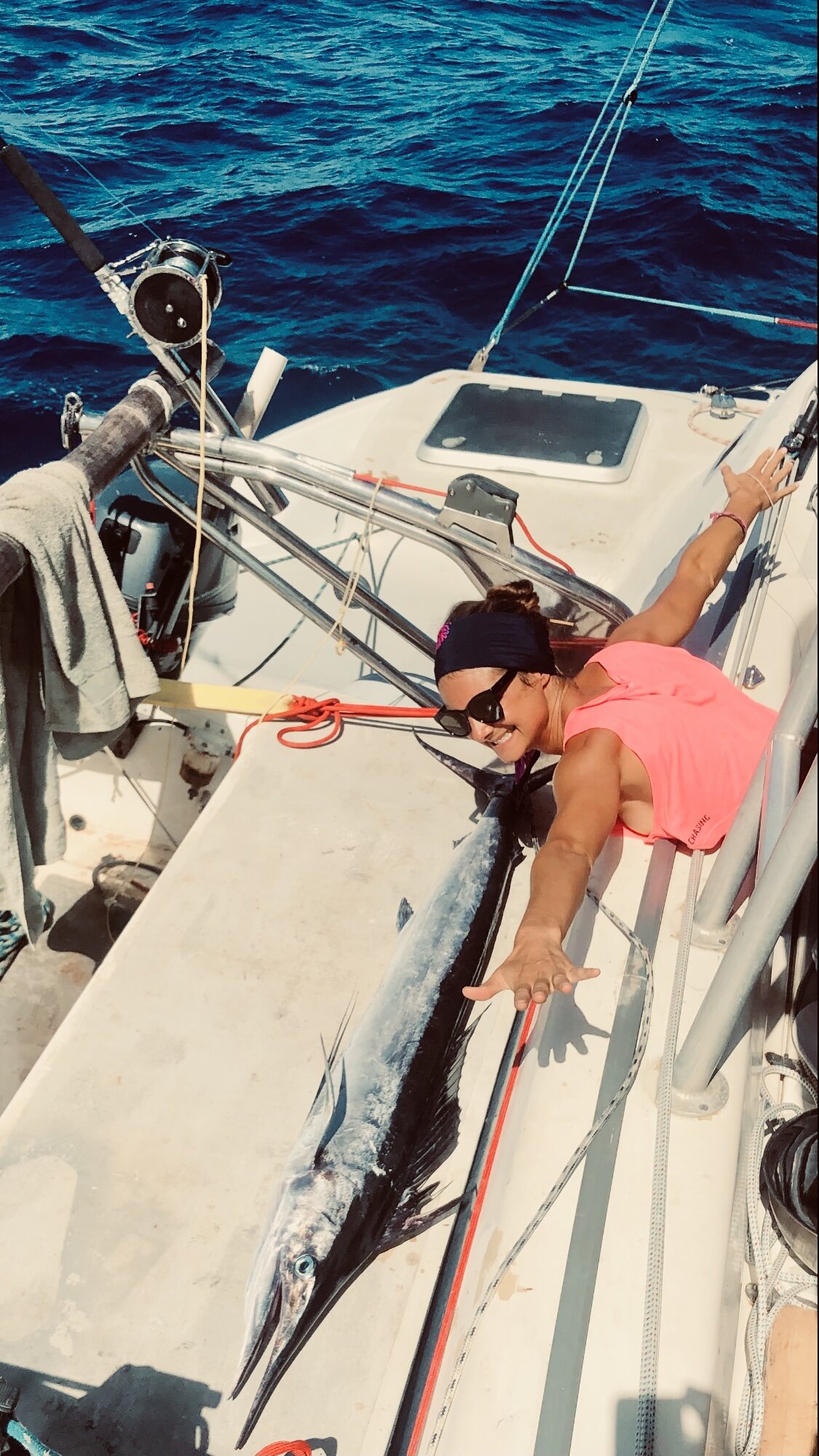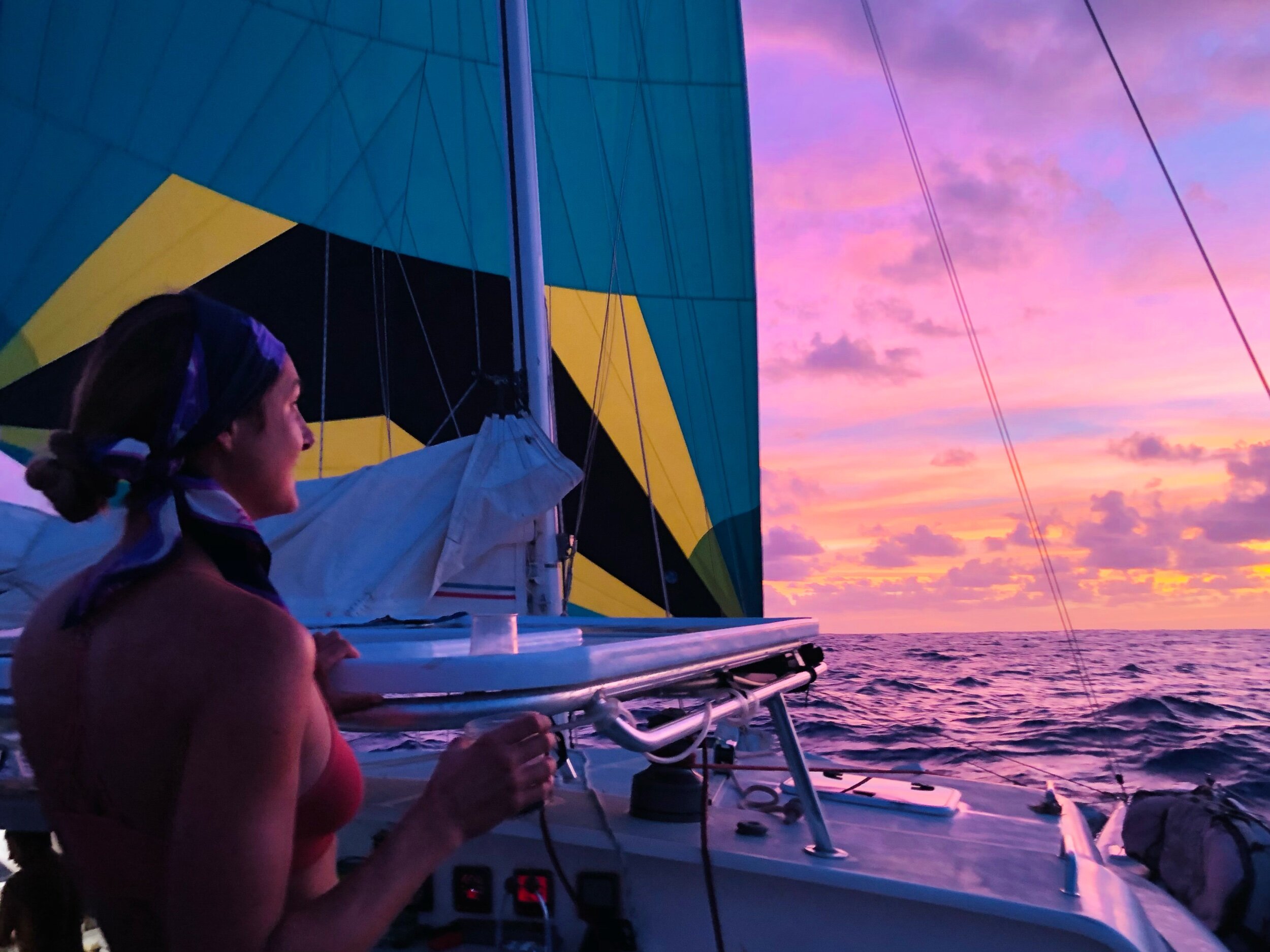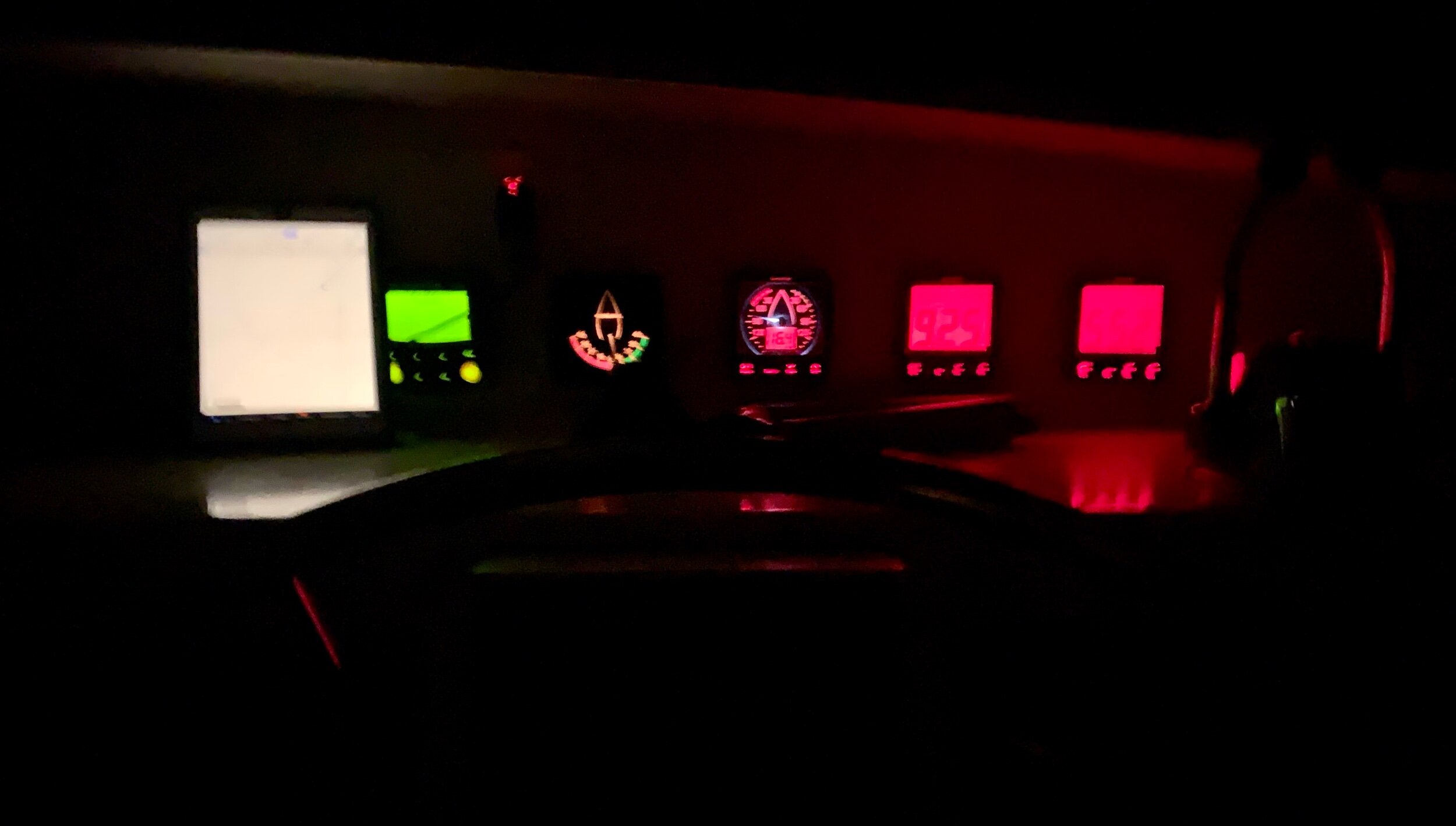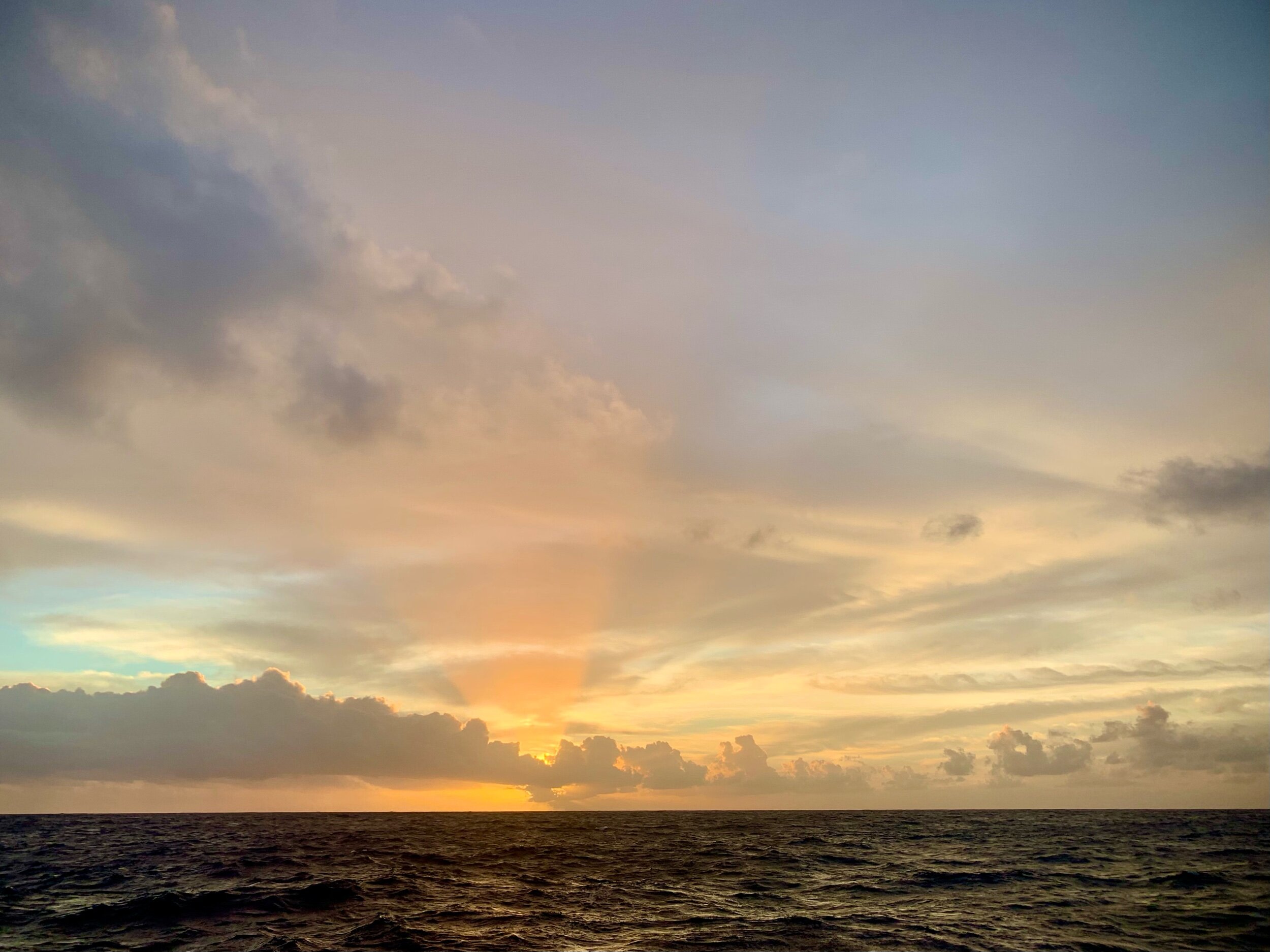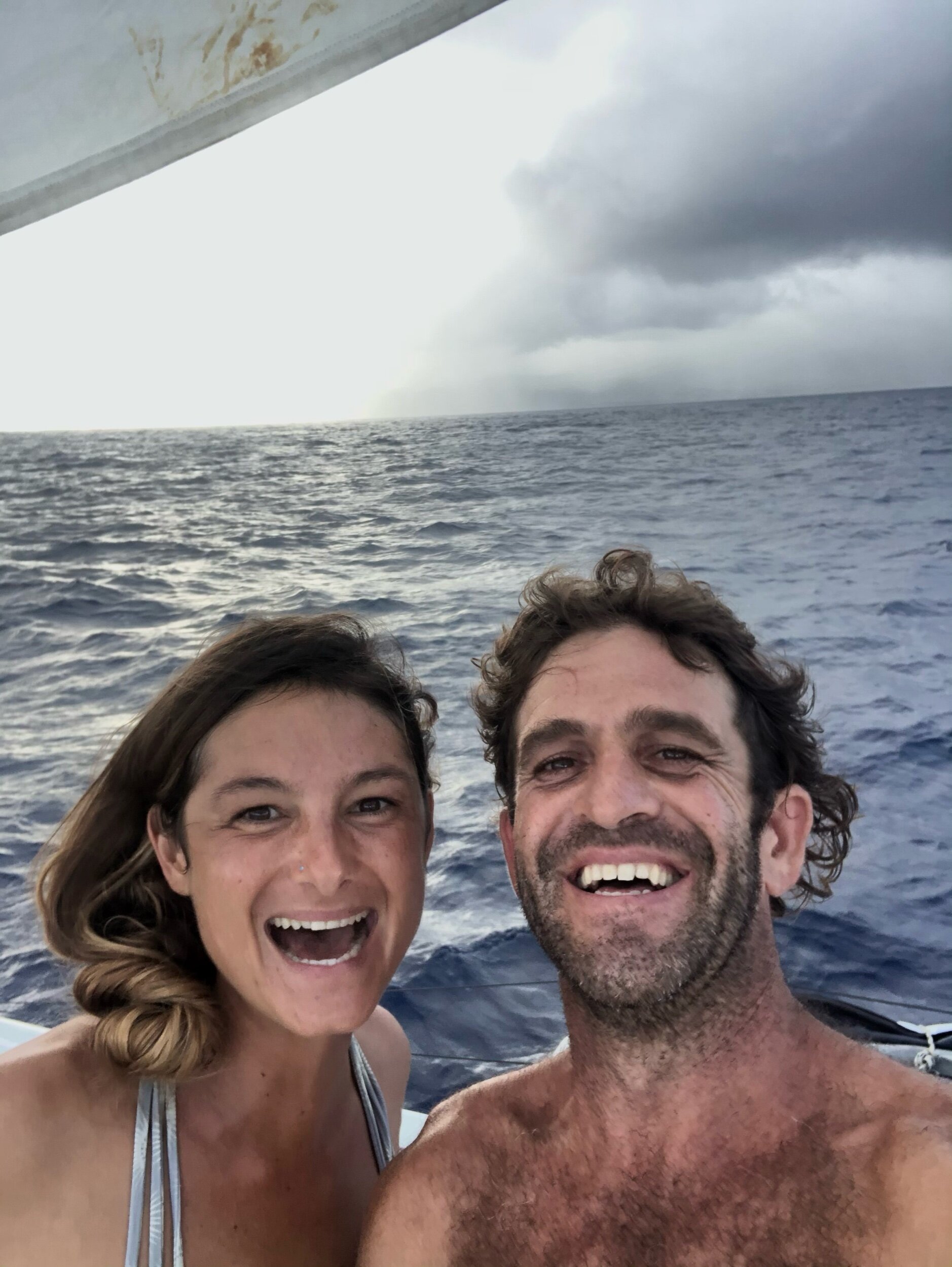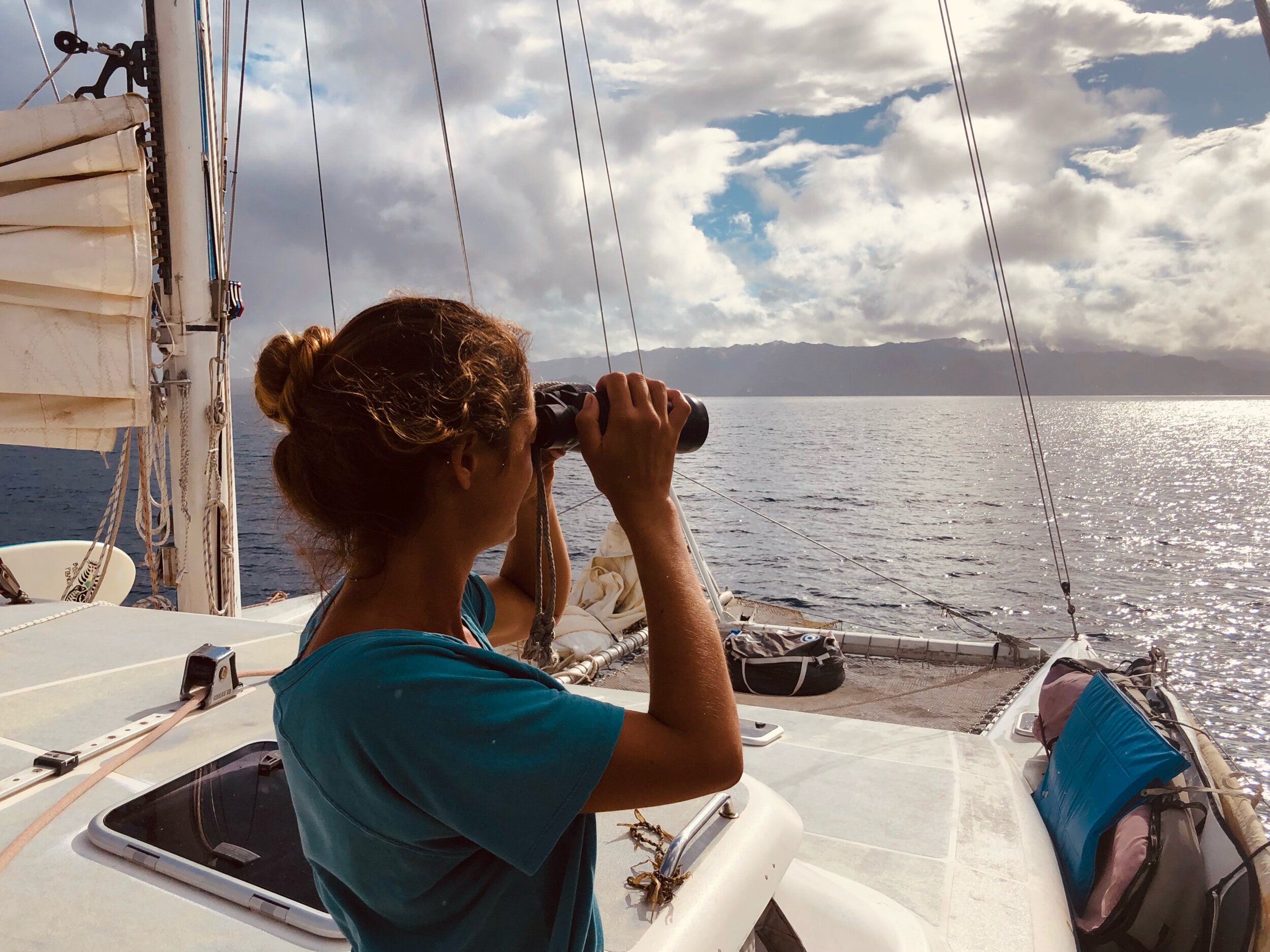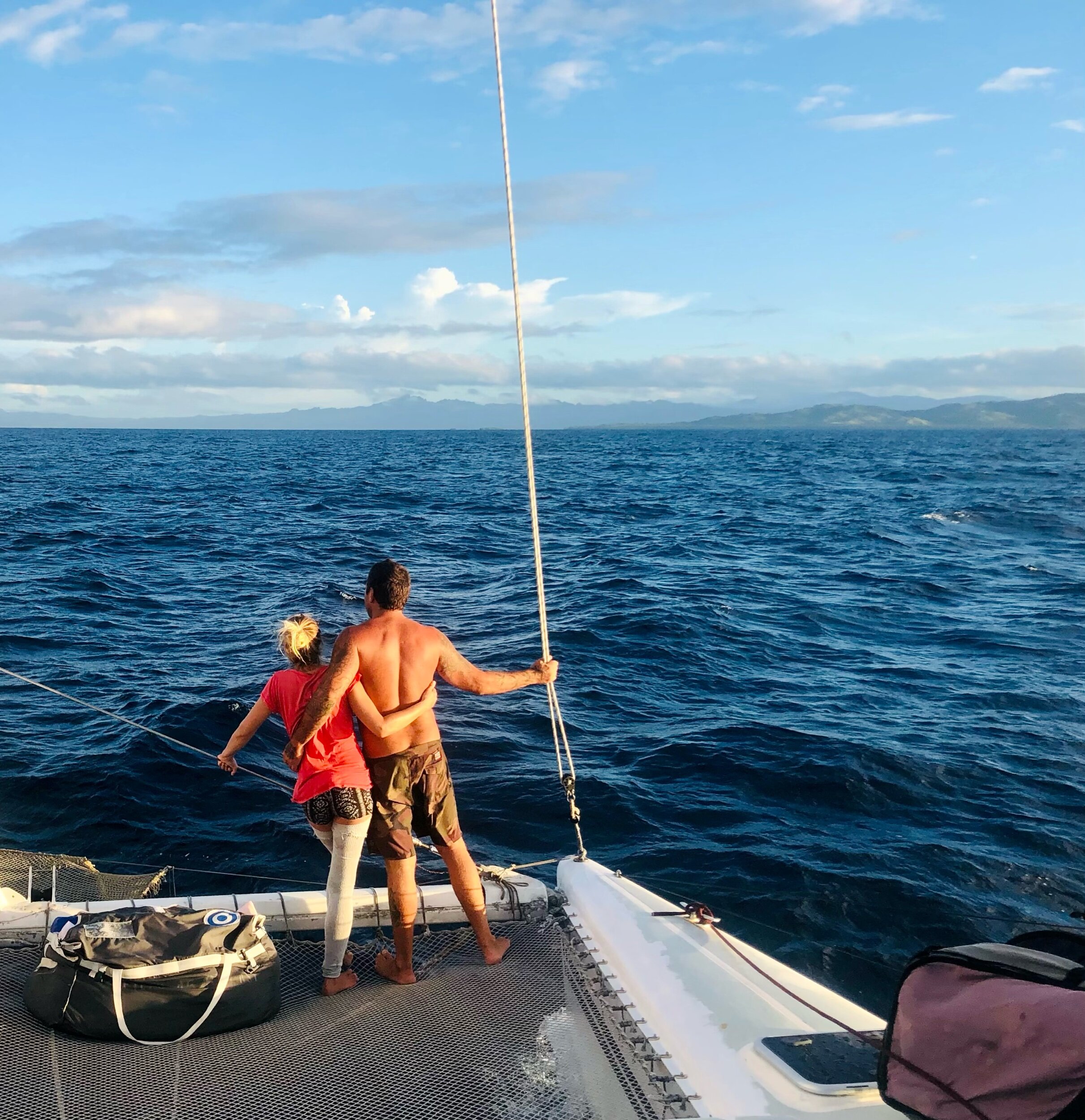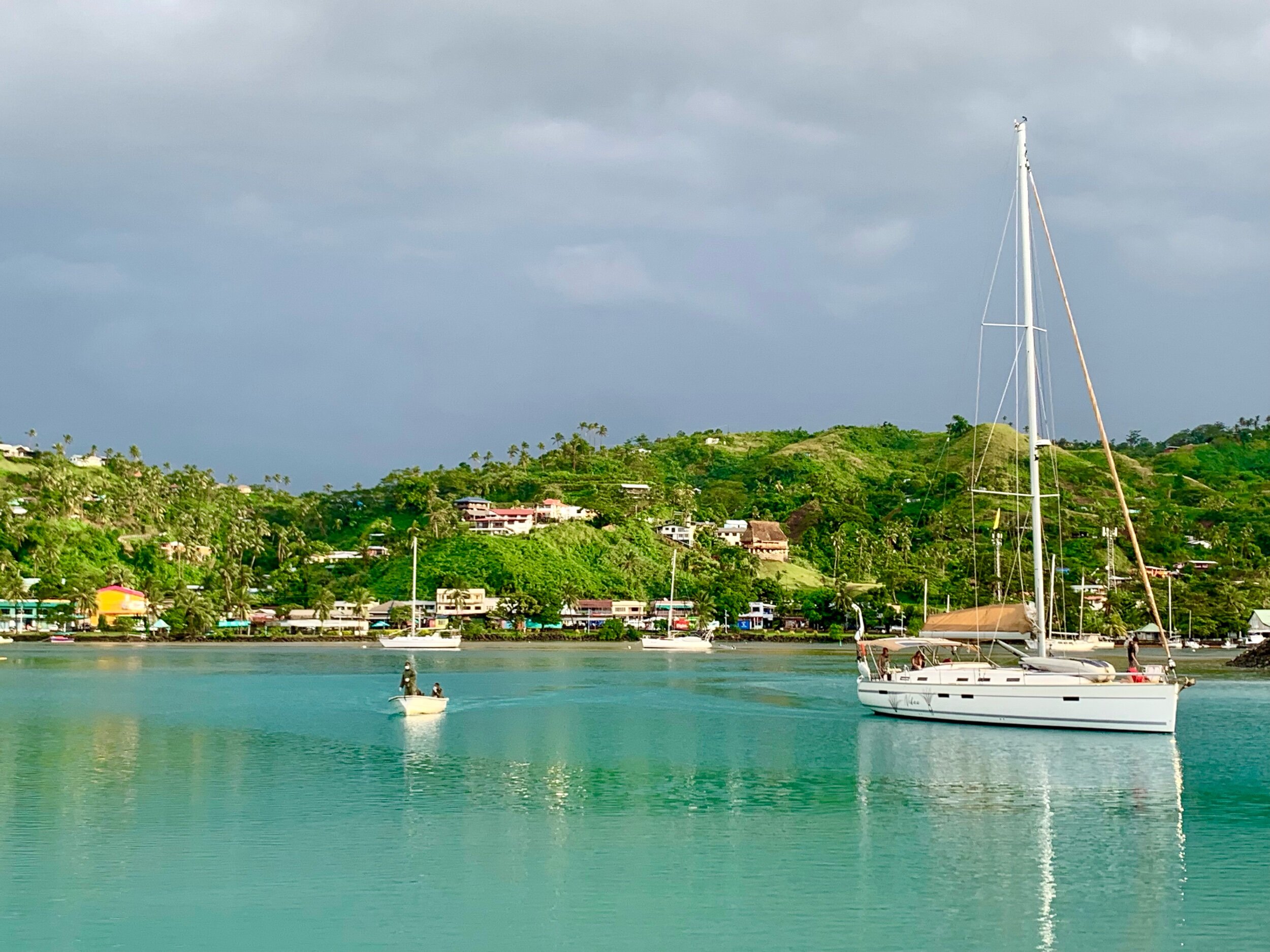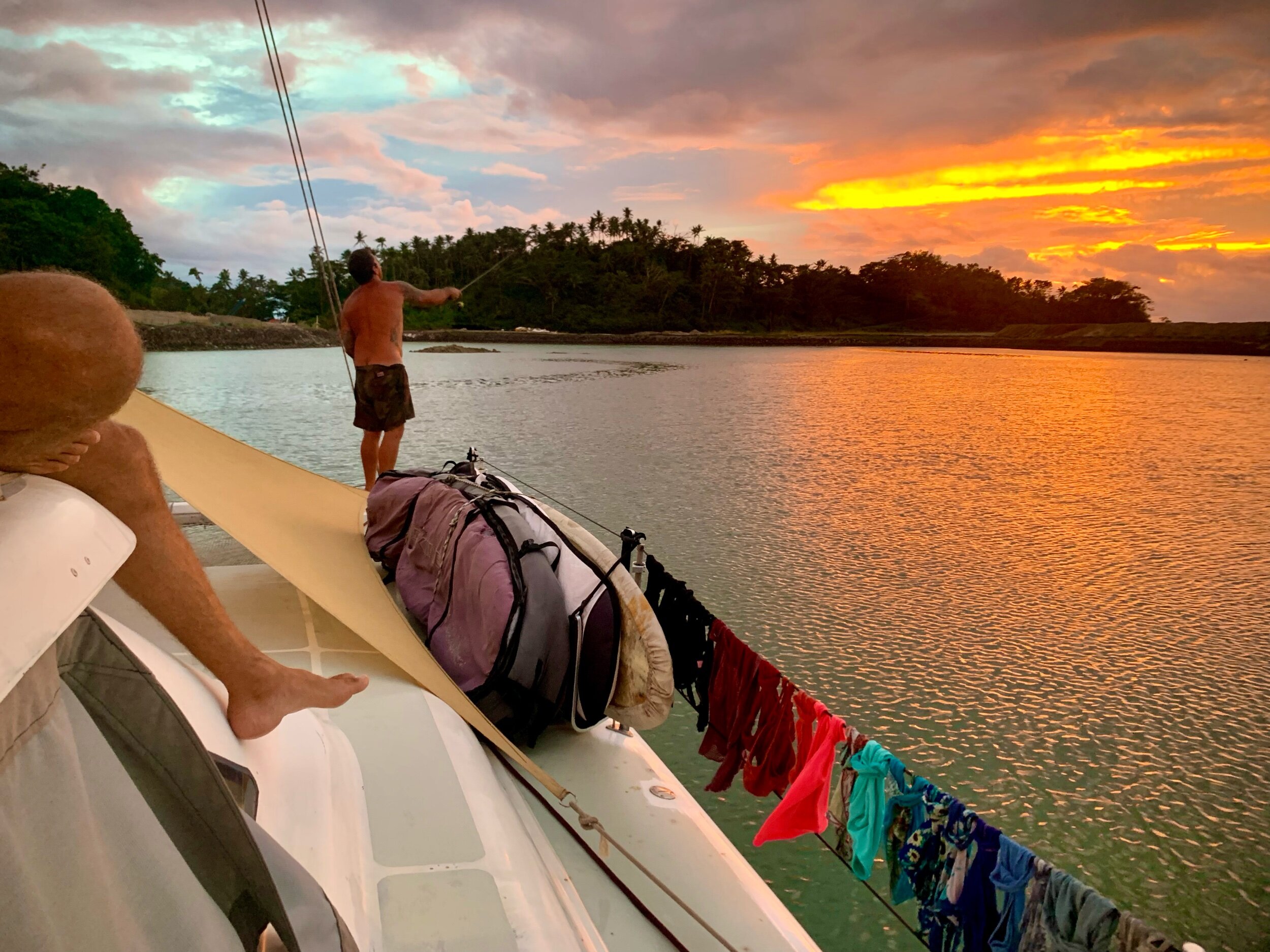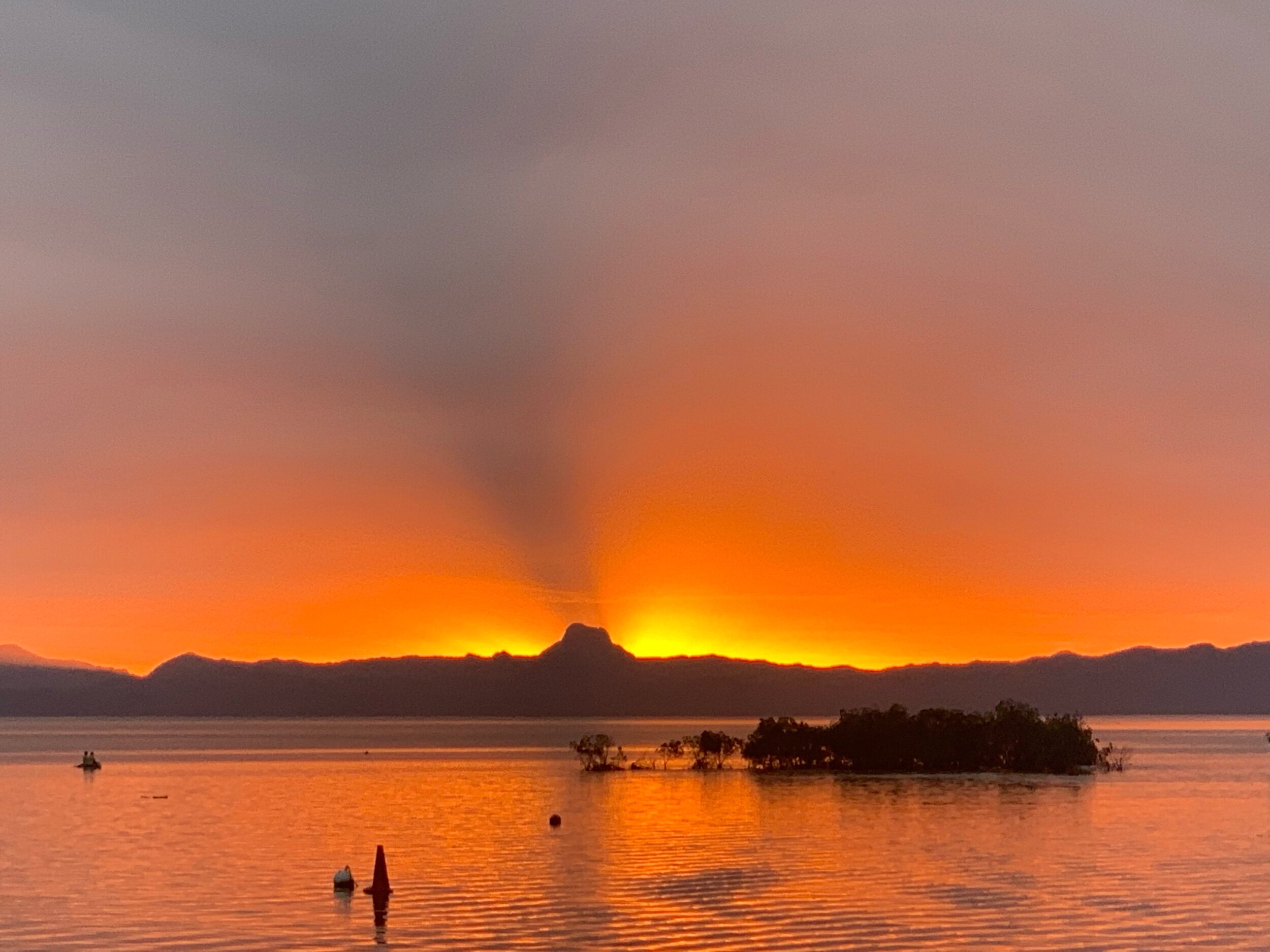Night Watch
After 14 nights at sea, we slid upon the smooth surface of a leeward coastline towards our port of entry. Before us, a silvery veil held Savusavu in a shroud of mystery. Wispy vapors rose from the sea, while translucent sheets descended from the sky. Through binoculars, we followed the contours of coconut-rimmed ridge lines until they disappeared in the billowing clouds and traced the angles of steep slopes that cascaded into foliage-softened shorelines.
These moments leading up to our official arrival in Fiji were laced with awe. After 14 nights at sea, I was seeing the world very differently. For, our passage from French Polynesia was far more than just a mode of transportation— it was a metamorphosis of perception.
The moments, events, days of the passage have rolled together in my mind like the timeless undulating waves upon the sea. The nights, however, stand out as definitive waypoints, their impressions stark, sharp and distinct in my mind.
Night watch became one of my favorite aspects of voyaging during our first passage from Hawaii to the Tuamotus. I relished in the silence, the space, the opportunity to tune in to our active elemental existence with unadulterated sensory awareness. There was something about the darkness that awakened my other senses. I learned to feel the wind upon my face to monitor its strength and angle. I became accustomed to listening to the sails, to the water against the hulls, to the lines creaking and the blocks clacking. I learned to heed any suspicious smells and even to taste the sea breeze for hints of its last landfall.
Vision, as a predominant sense, was dedicated to examining navigation instruments, both technological and celestial. A refined equation of charts and dials and numbers glowed upon the helm in front of me, while smoldering stars told a similar story from lightyears away. My eyes traveled between the two, honing in on the tools of modern technology and ancient systems simultaneously.
Initially, it was like learning a new language…
… Course overground (COG), speed overground (SOG), windspeed (apparent and true), wind angle, knots and longitudes and latitudes and the rare AIS alarm.
… The Southern Cross, Polaris, Arcturus, Orion’s Belt, Hōkūle’a, la luna.
Night by night, I became more oriented to the all the parts of the equation that added up to the sum of sailing. And, night by night, as it all started to make more sense, my time spent standing watch became more and more engaging. For, night watch was far more than trying to stay awake sitting solo at the helm during odd hours of the night. Night watch was an opportunity to connect directly with the forces that heralded us towards our destination. It was a time to observe the subtle shifts in nature’s fluid equilibrium and to make appropriate adjustments to stay aligned, to stay on course, to stay alive.
During night watch, the sharp edge of reality activates instinct in a way that overrides drowsiness, boredom, or any dull-shaded demeanor. Despite the darkness, life comes alive. And, contrary to the connotations of night, the common senses are riddled with stimuli. The wind and sails and stars and waves weave together like a roaring orchestra that billows through the body. And, in its most striking, stunning, yet simple performance, the harmonies of that orchestra define the line of life and death.
During night watch, the sobering responsibility of awareness caused my senses to awaken, to adapt, to morph beyond the proverbial “night vision.” Our lives literally depended on this sensibility. And, as I came to comprehend, the carryover of these newfound optics into daylight expanded the scope of my horizons beyond what I thought possible.
So, as we serenely transitioned from our blue water sanctuary into the misty seas of Savusavu Bay, I experienced the world through a whole new set of lenses. It wasn’t just my eyes that were seeing with a fresh perspective— my entire being received environmental information with the precious vantage of lucidity.
Known by westerners as Fiji, the far-reaching island archipelago is locally referred to as Viti.
In Sanskrit, viti means “light.”
In Old Norse, viti means “lighthouse” or “beacon.”
In Icelandic, viti means “sign” or “omen.”
Primed by 14 nights at sea, my time in Fiji has been a divine reveal of unforeseen potentials. Acquainting myself with the nuances of night have translated into a heightened sense of light, of life, of the raw edges that define my reality. It’s more than the apparent knowing of nature’s force fields, it’s their true application. It’s discovering for myself what those edges see, feel, sound, taste and smell like… and then stepping up to the helm to navigate, even in the dark of night.


